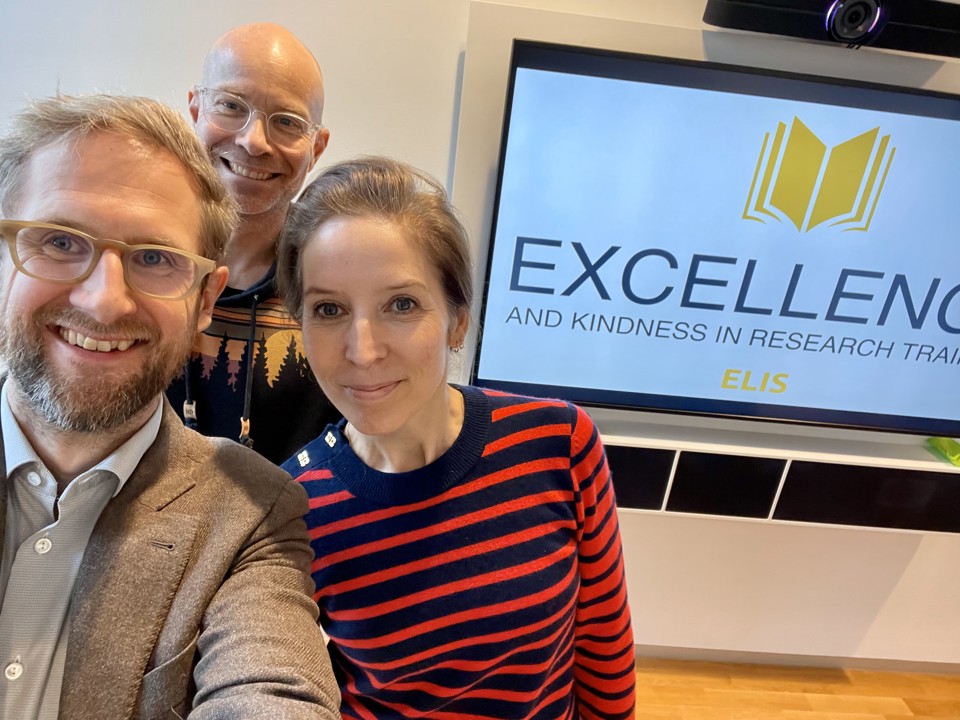By Sofie Astrup, AAU Communication and Public Affairs
Photo: Private photo
According to Michael Skovdal Rathleff, Professor and research group leader at the Department of Health Science and Technology, a culture of competition and hierarchical structures drive parts of the research world and can make it less attractive to younger generations.
In an attempt to break with the existing culture, he runs ELIS – Excellence and Kindness in Research Training in conjunction with Julie Midtgaard and Thomas Bandholm, both professors at the University of Copenhagen.
"As researchers, we focus on each of our own specific areas. But in ELIS, we agree on what is even more important: culture and values. This suggests that a research culture of kindness where we care for each other can help us all to better achieve excellence and success in our work," says Michael Skovdal Rathleff.
Through ELIS, they are holding various activities in both Aalborg and Copenhagen to jumpstart the dialogue on good research group culture. According to Michael Skovdal Rathleff, the goal of the initiative is to create dialogue on how we embrace both excellence and kindness.
